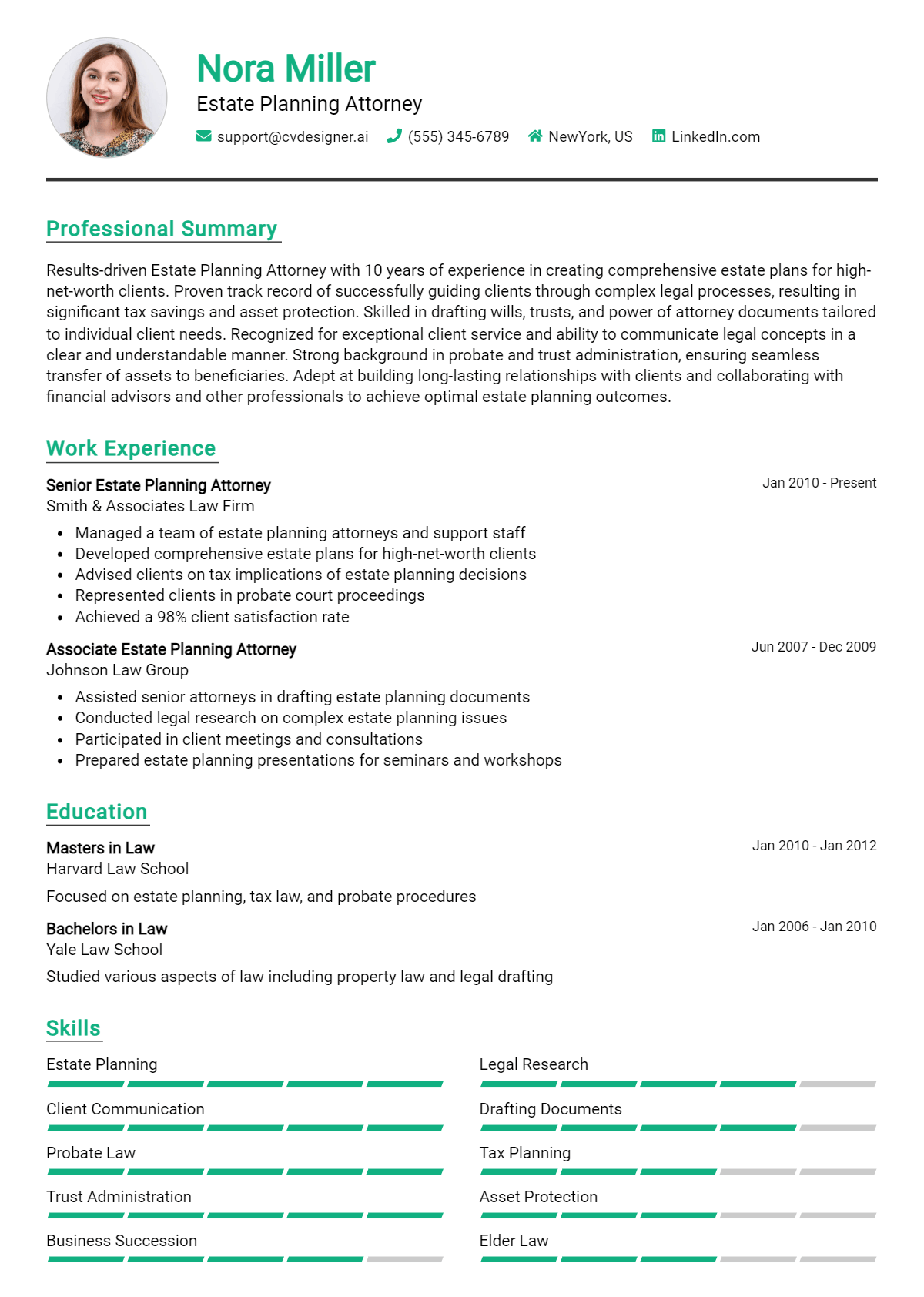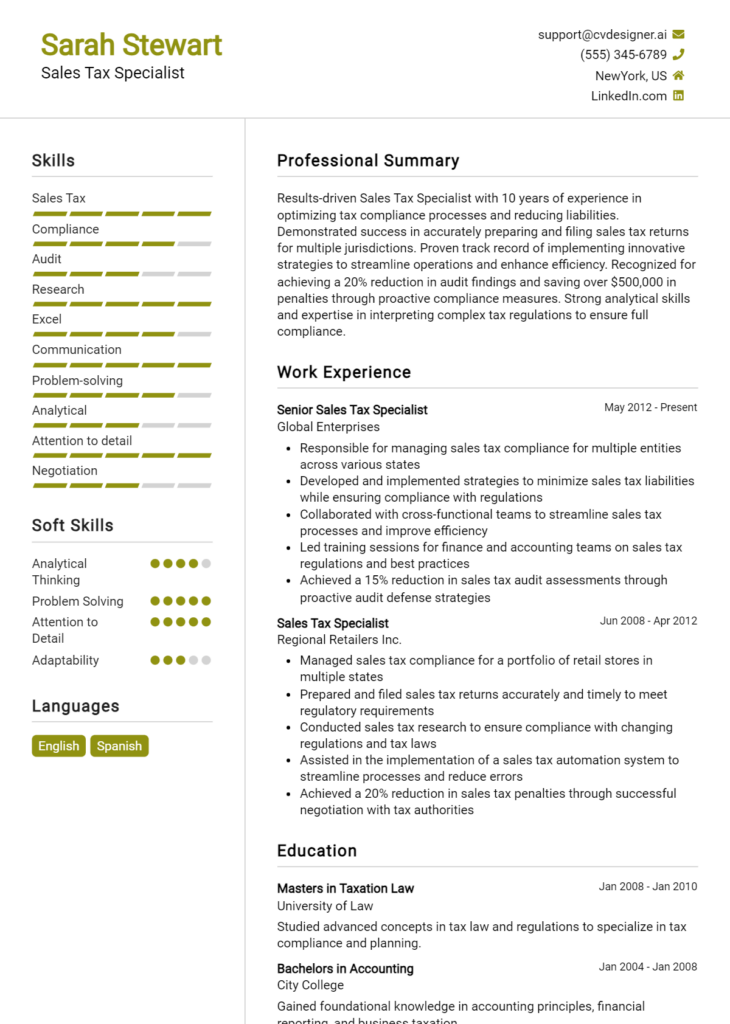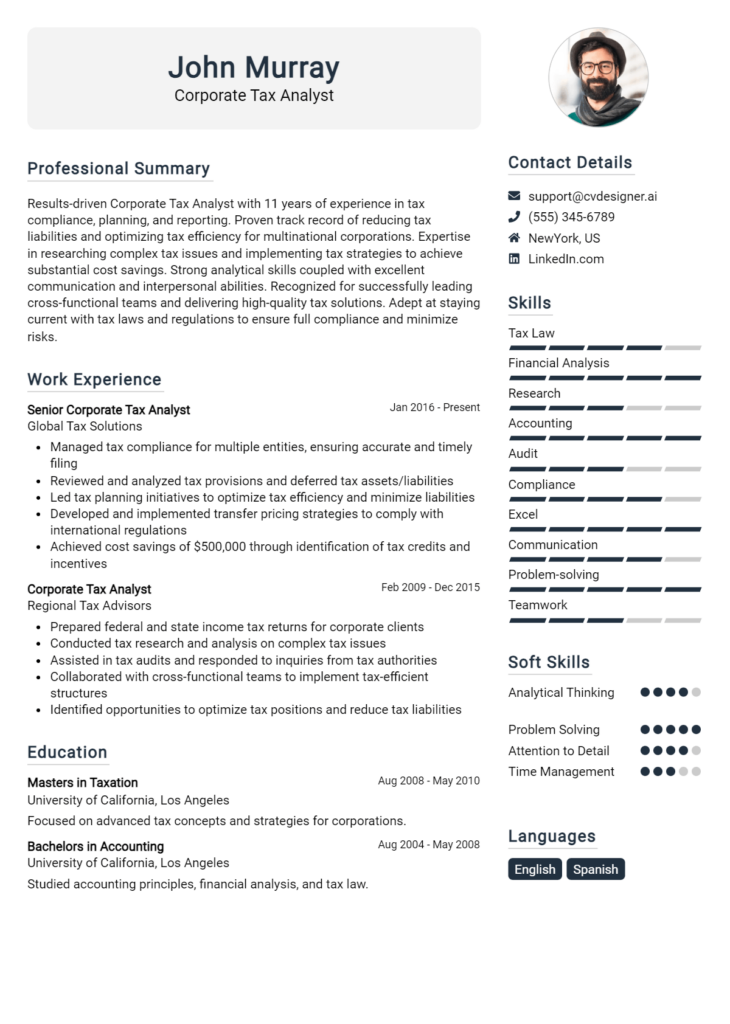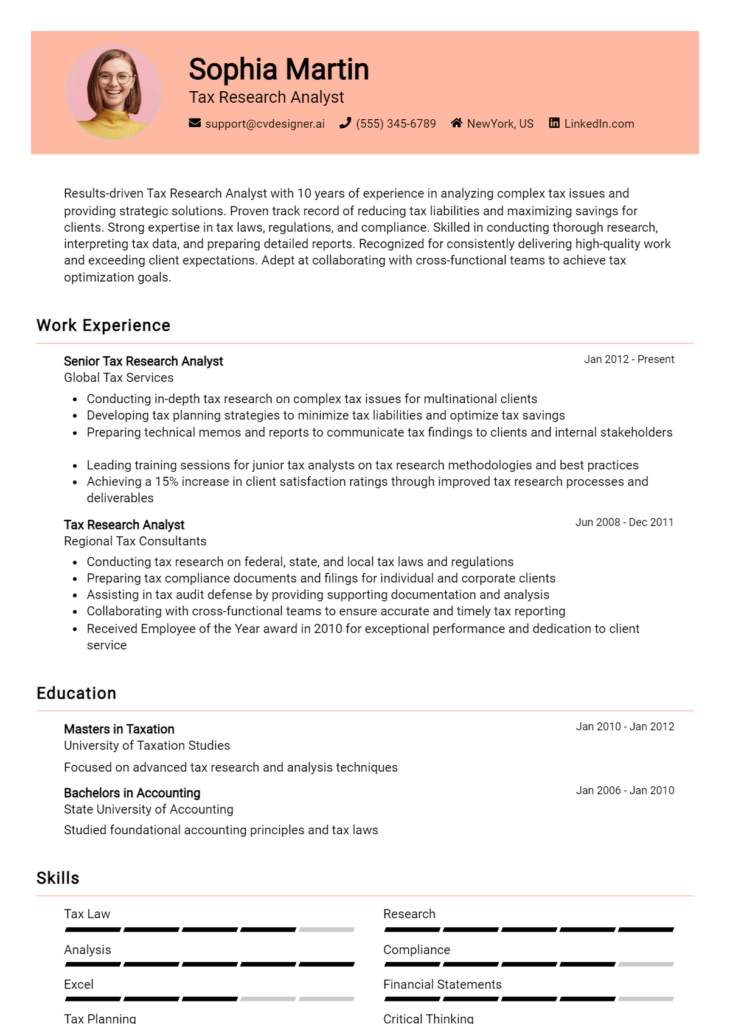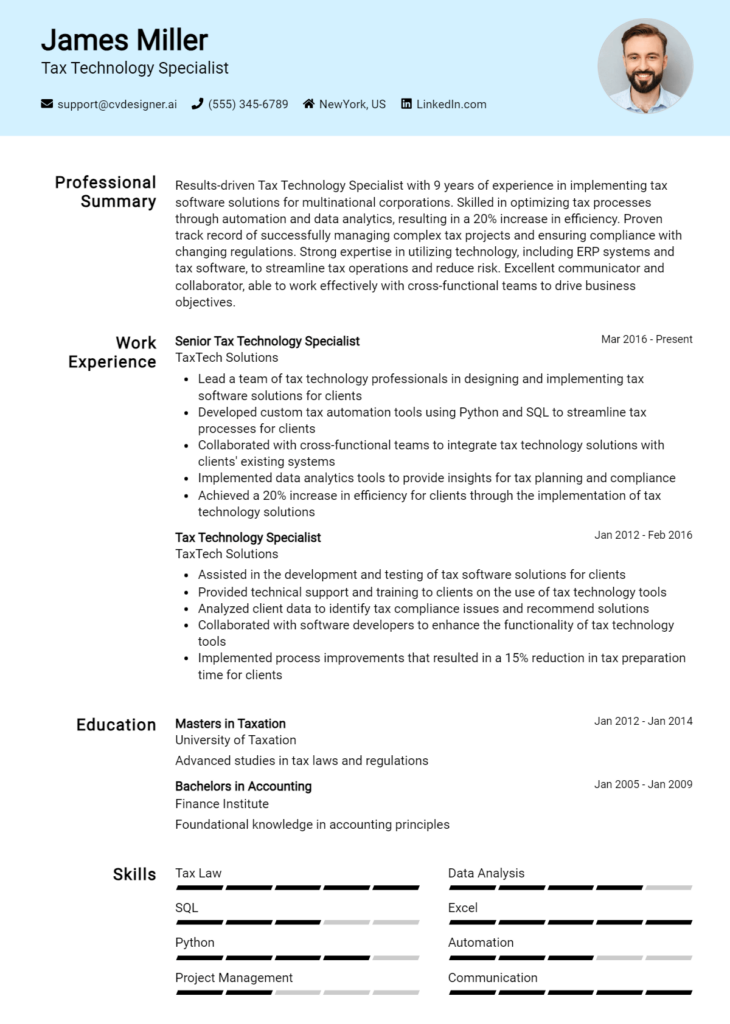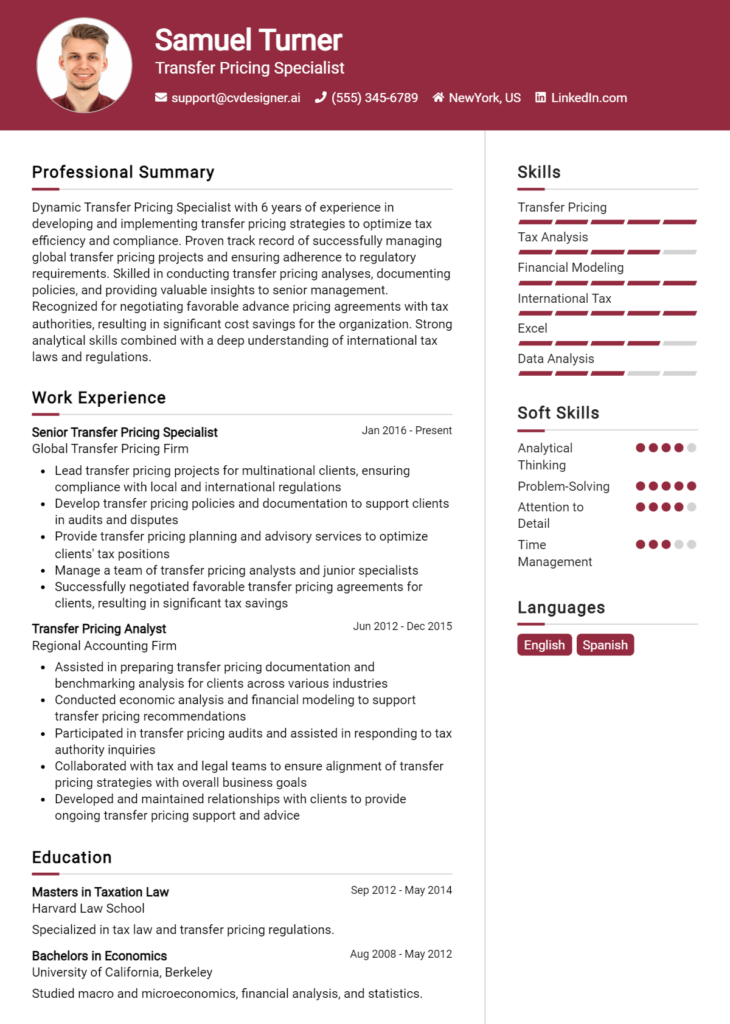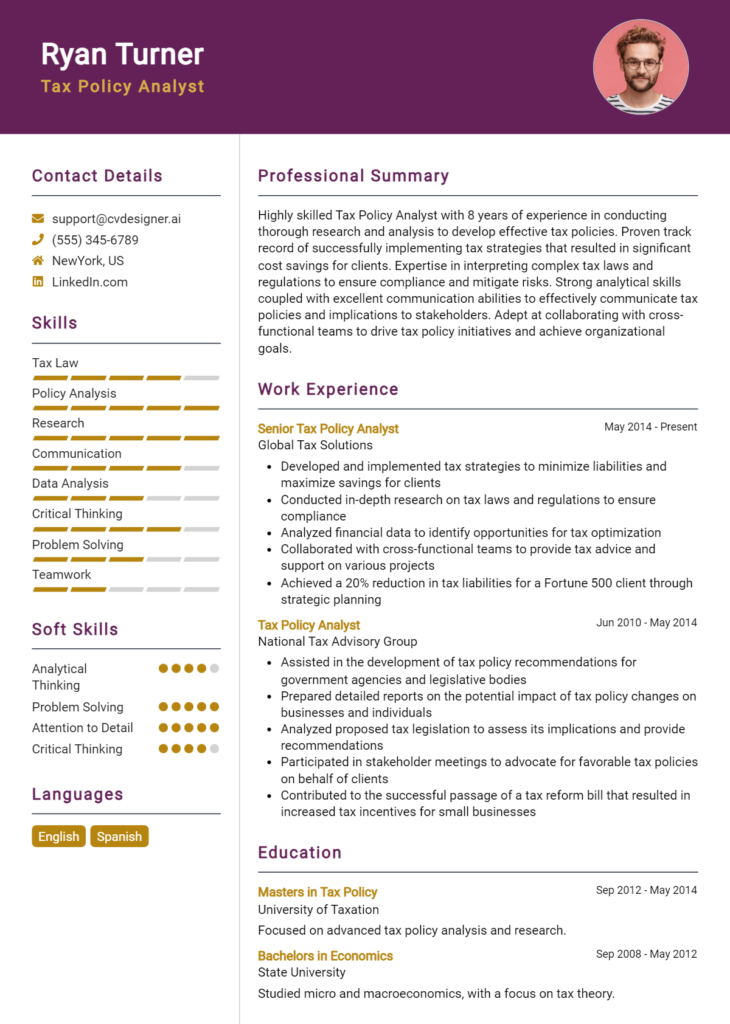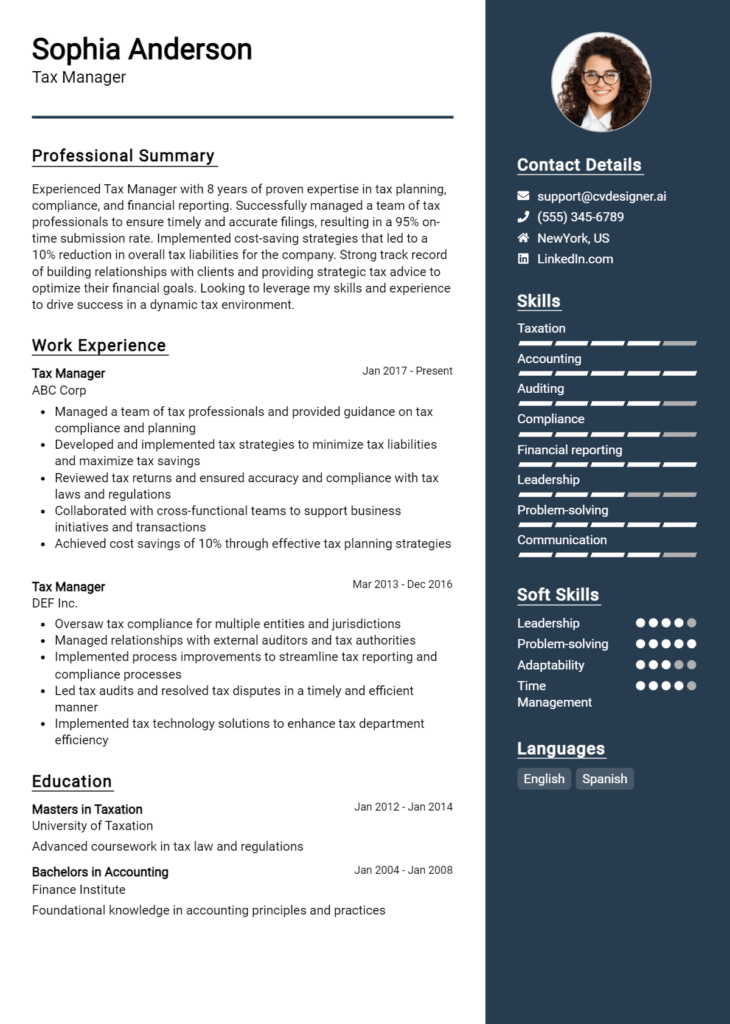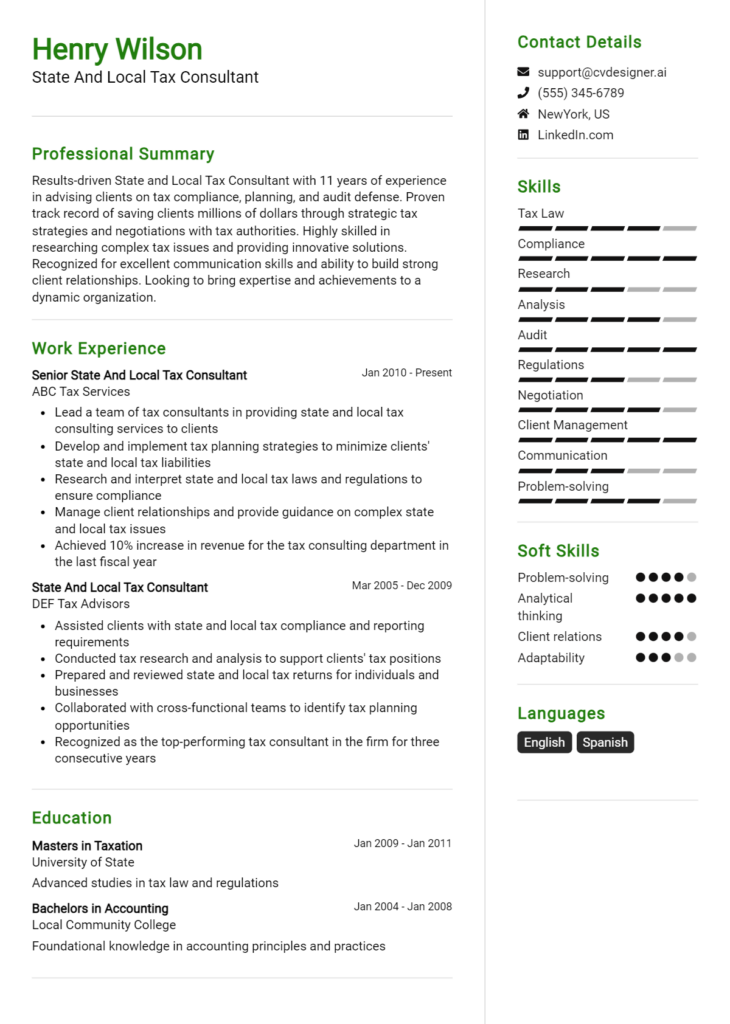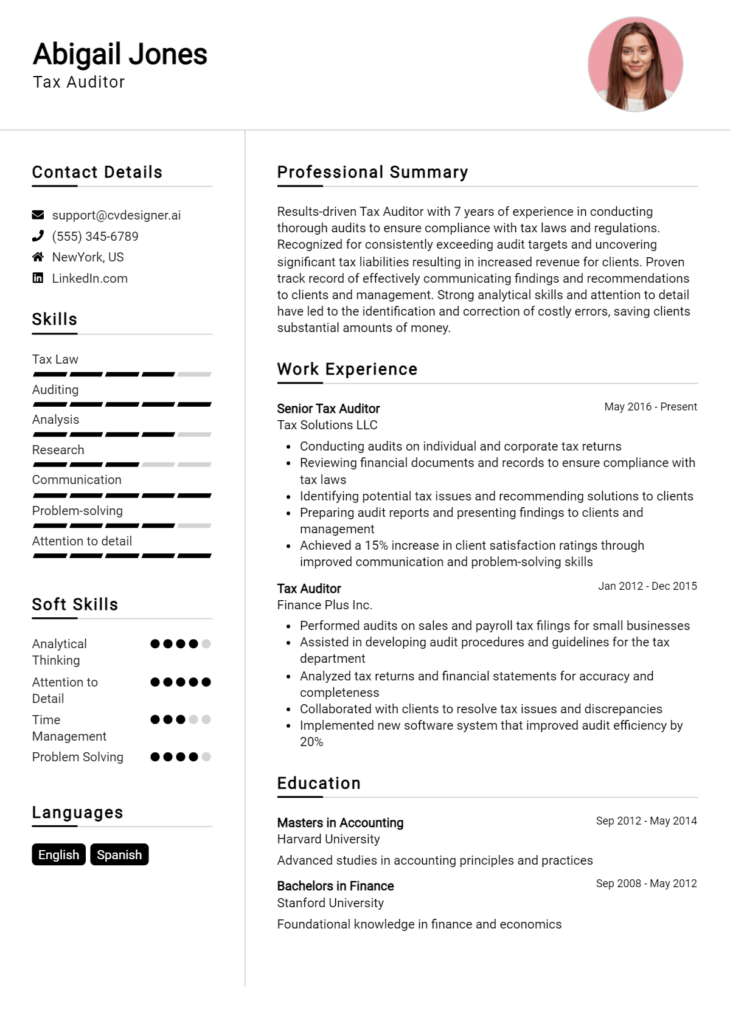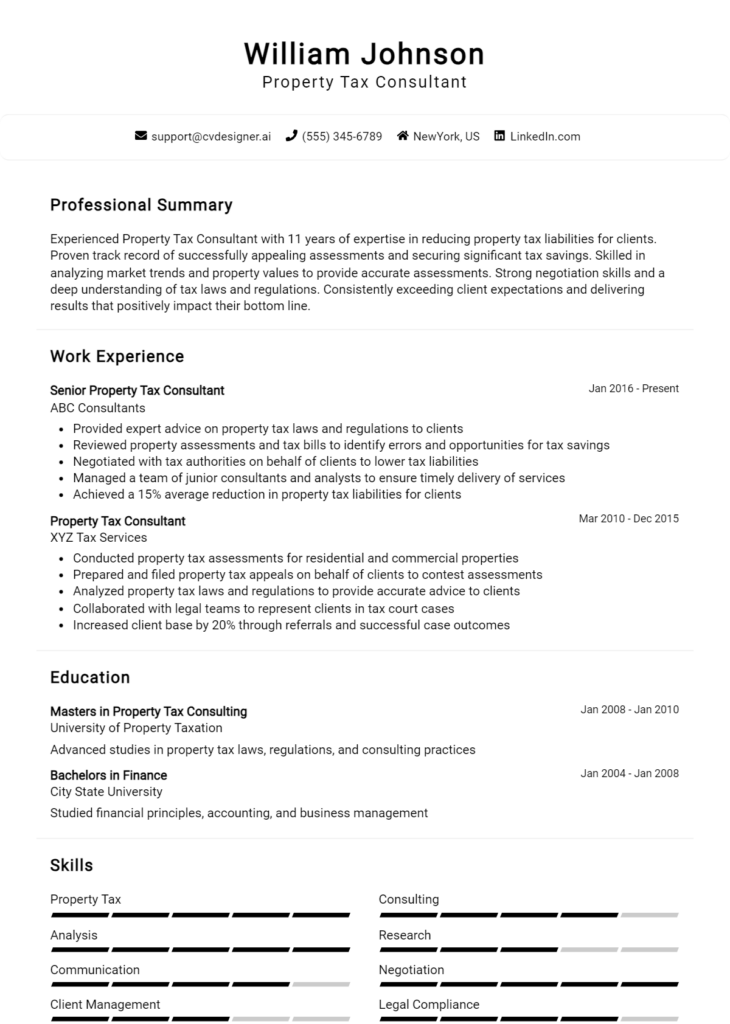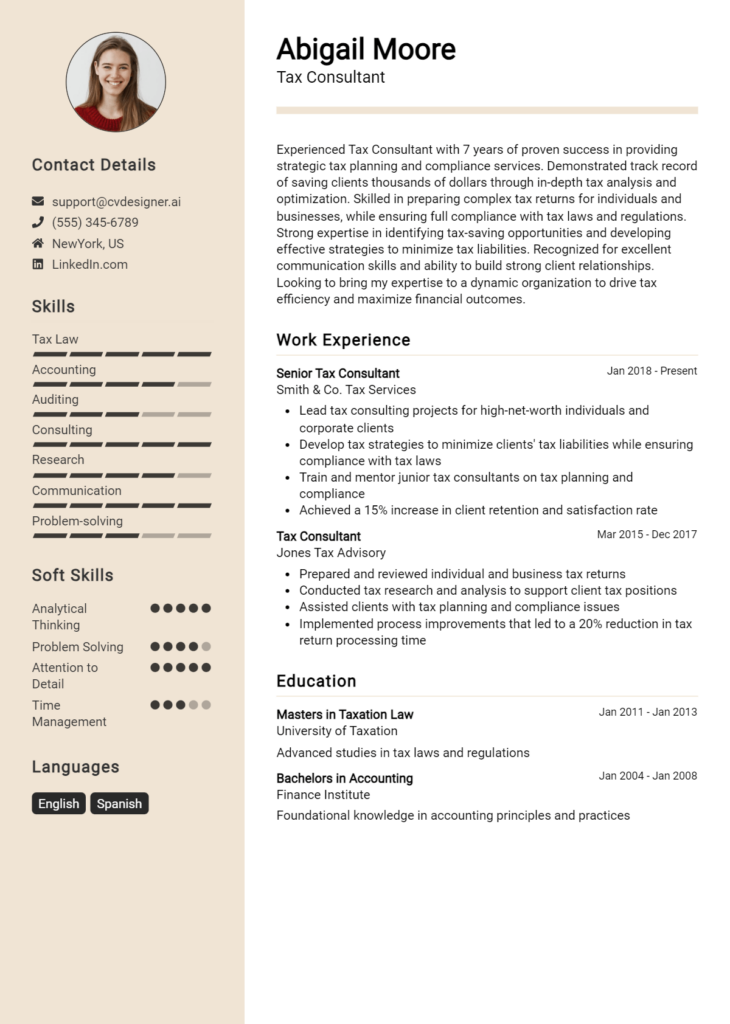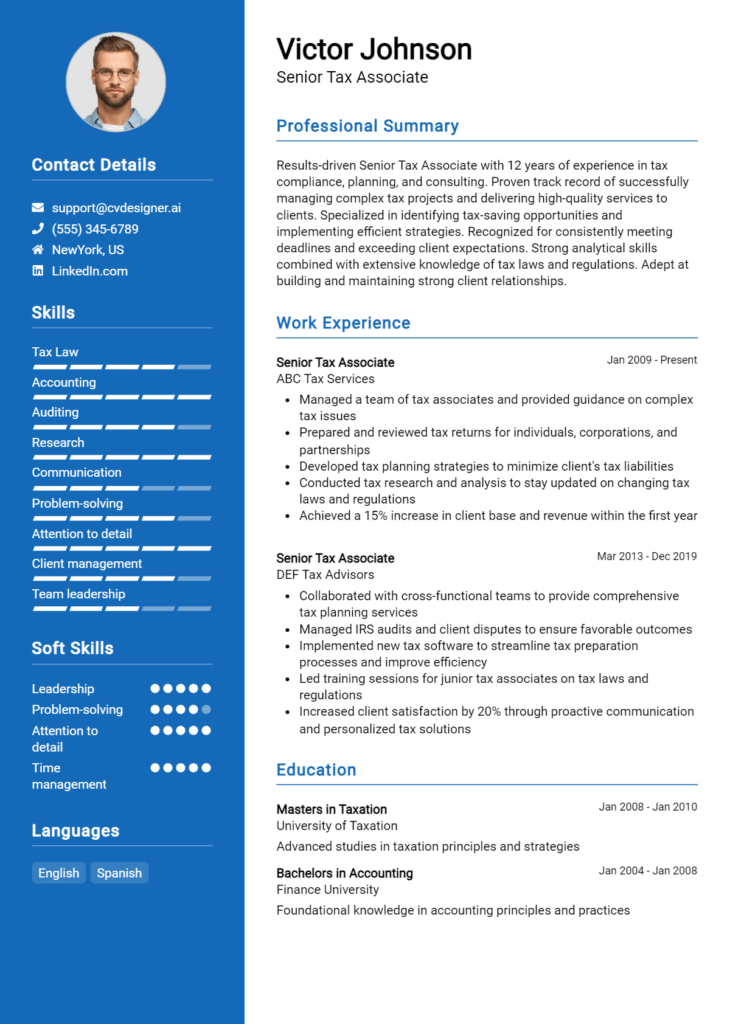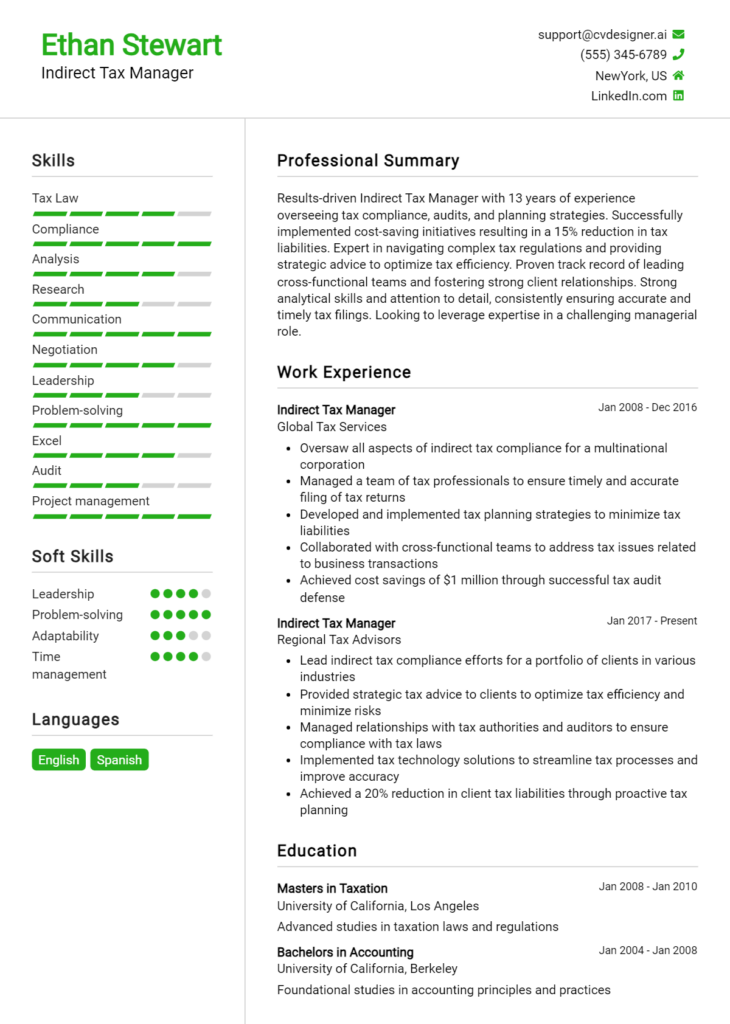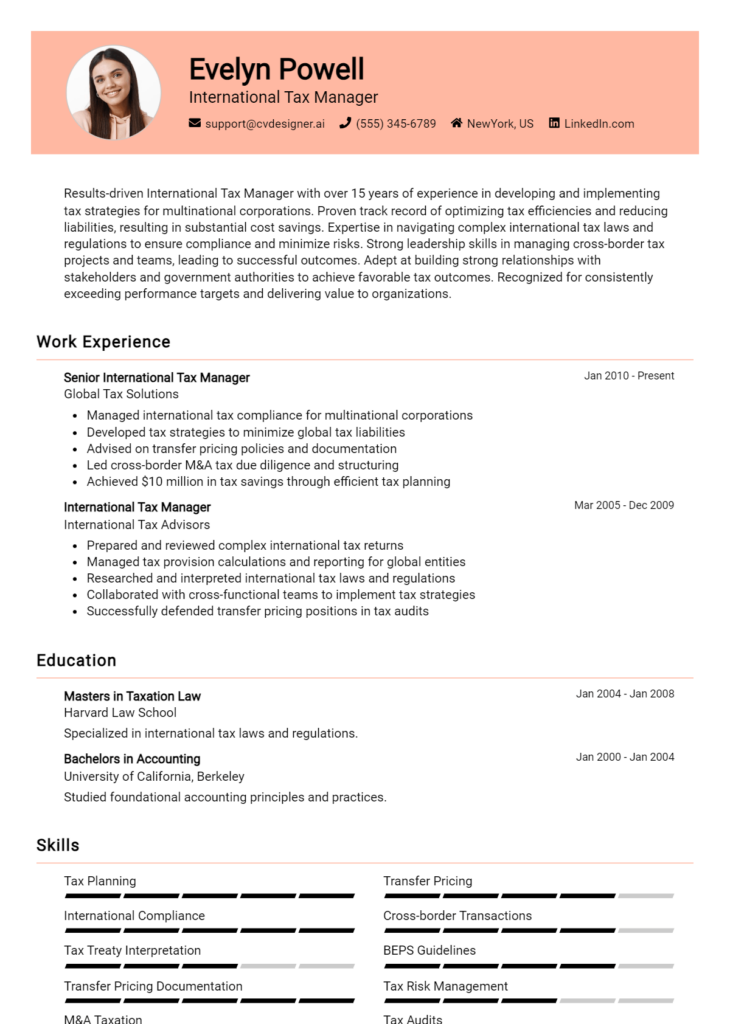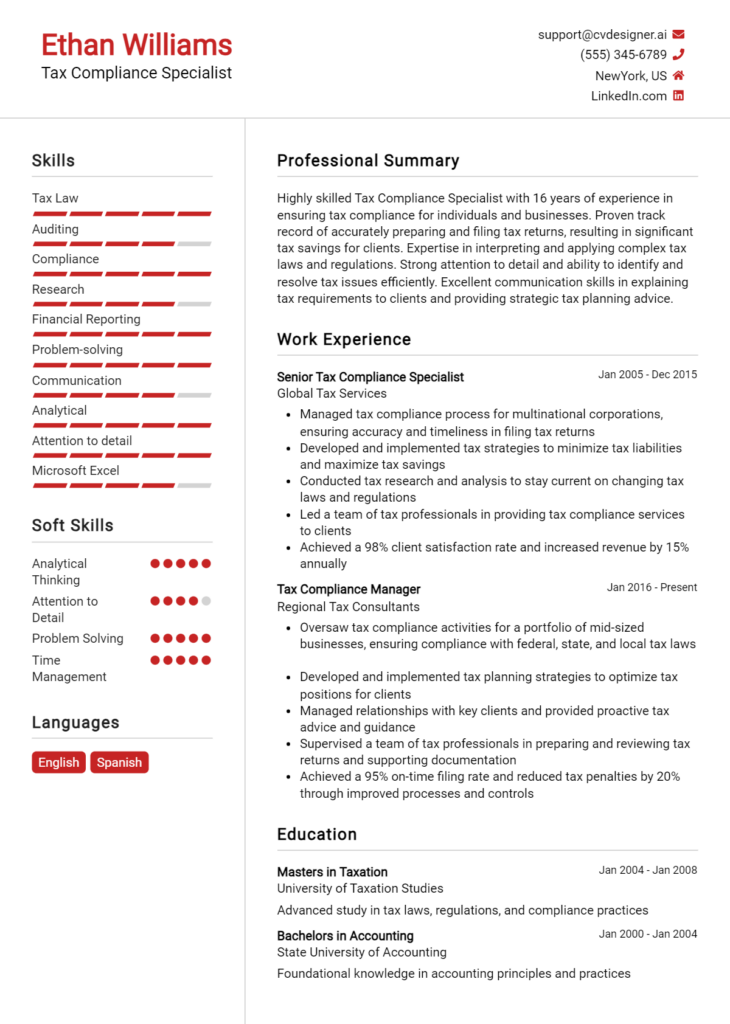Estate Planning Attorney Core Responsibilities
An Estate Planning Attorney plays a vital role in helping clients navigate complex legal frameworks to secure their assets for future generations. Key responsibilities include drafting wills, trusts, and estate planning documents, as well as advising clients on tax implications and asset distribution. Essential skills encompass technical legal knowledge, operational efficiency, and advanced problem-solving abilities. By bridging departments like finance and taxation, these attorneys contribute significantly to organizational goals. A well-structured resume highlighting these qualifications can effectively showcase their expertise and value to potential employers.
Common Responsibilities Listed on Estate Planning Attorney Resume
- Drafting and reviewing wills, trusts, and other estate planning documents
- Advising clients on estate and tax planning strategies
- Conducting legal research to support estate planning efforts
- Managing client relationships and providing personalized legal advice
- Representing clients in probate court proceedings
- Collaborating with financial advisors and tax professionals
- Educating clients on the implications of estate laws
- Updating estate plans in response to changing laws or client circumstances
- Conducting workshops or seminars on estate planning topics
- Ensuring compliance with all relevant state and federal regulations
- Analyzing the financial implications of estate plans
High-Level Resume Tips for Estate Planning Attorney Professionals
In today's competitive legal landscape, a well-crafted resume is essential for Estate Planning Attorney professionals looking to make a lasting impression on potential employers. Your resume often serves as the first point of contact with hiring firms, making it crucial to reflect not only your skills and qualifications but also your achievements in the field. A strong resume will effectively communicate your expertise in estate planning, showcasing your ability to navigate complex legal requirements and provide comprehensive solutions for clients. This guide will offer practical and actionable resume tips specifically tailored for Estate Planning Attorney professionals, helping you to stand out in a crowded job market.
Top Resume Tips for Estate Planning Attorney Professionals
- Tailor your resume to the specific job description, using keywords and phrases that align with the employer's requirements.
- Highlight relevant experience in estate planning, including roles in trust administration, probate, and tax law.
- Quantify your achievements where possible, such as the number of successful estate plans drafted or the amount of assets managed.
- Showcase your understanding of relevant laws and regulations, including state-specific statutes that pertain to estate planning.
- Include certifications or specialized training in estate planning, such as being a Certified Estate Planner (CEP) or a member of the American Academy of Estate Planning Attorneys.
- Utilize a clean, professional format that enhances readability and allows important information to stand out.
- Incorporate strong action verbs to describe your responsibilities and accomplishments, conveying a sense of proactivity and expertise.
- Emphasize your interpersonal skills, as client relationships are vital in estate planning, including communication and negotiation abilities.
- Consider adding a summary statement at the beginning of your resume that encapsulates your experience and professional philosophy in estate planning.
By implementing these tips, you can significantly increase your chances of landing a job in the Estate Planning Attorney field. A targeted and polished resume will not only showcase your qualifications but also reflect your commitment to helping clients navigate their estate planning needs, making you a compelling candidate for prospective employers.
Why Resume Headlines & Titles are Important for Estate Planning Attorney
In the competitive field of estate planning law, the role of a resume headline or title is crucial in making a strong first impression on hiring managers. A well-crafted headline serves as a concise summary of a candidate's qualifications and expertise, instantly grabbing attention and differentiating them from other applicants. It should encapsulate the essence of the candidate's professional identity, reflecting their skills, experience, and the specific role they are targeting within estate planning. By being relevant and impactful, a strong resume headline can effectively set the tone for the rest of the resume, guiding hiring managers in understanding the candidate’s suitability for the position at a glance.
Best Practices for Crafting Resume Headlines for Estate Planning Attorney
- Keep it concise: Aim for one powerful sentence that summarizes your professional identity.
- Be role-specific: Tailor the headline to the specific estate planning position you are applying for.
- Highlight key qualifications: Include important skills or experiences relevant to estate planning law.
- Use dynamic language: Choose action-oriented words that convey competence and confidence.
- Avoid jargon: Use clear, straightforward language that is easily understood by hiring managers.
- Incorporate keywords: Utilize industry-specific terms that align with the job description to enhance visibility.
- Showcase value: Emphasize what you bring to the table, such as specific accomplishments or expertise.
- Maintain professionalism: Ensure the tone is serious and reflects the standards of the legal profession.
Example Resume Headlines for Estate Planning Attorney
Strong Resume Headlines
Experienced Estate Planning Attorney Specializing in Tax Strategies and Wealth Preservation
Dedicated Legal Professional with Over 10 Years of Experience in Estate Law and Trust Administration
Certified Estate Planning Specialist Committed to Delivering Comprehensive Legal Solutions for Clients
Weak Resume Headlines
Lawyer Looking for Job
Experienced in Various Legal Matters
The strong resume headlines are effective because they are specific, highlight relevant expertise, and convey a sense of professionalism and accomplishment. They immediately communicate the candidate's unique value and qualifications in the estate planning field. In contrast, the weak headlines lack detail and specificity, failing to capture the attention of hiring managers or to convey a clear picture of the candidate’s expertise. By avoiding ambiguity and focusing on concrete strengths, strong headlines can make a significant impact in the competitive job market for estate planning attorneys.
Writing an Exceptional Estate Planning Attorney Resume Summary
In the competitive landscape of estate planning law, a well-crafted resume summary is essential for an Estate Planning Attorney. This concise paragraph serves as the first impression for hiring managers, quickly capturing their attention by highlighting the candidate's key skills, relevant experience, and notable accomplishments. A strong resume summary not only sets the tone for the entire resume but also succinctly communicates how the candidate's qualifications align with the needs of the employer. By being impactful and tailored to the specific job, it can make a significant difference in securing an interview.
Best Practices for Writing a Estate Planning Attorney Resume Summary
- Quantify Achievements: Use specific numbers and metrics to illustrate your impact, such as the number of successful wills drafted or the percentage of client satisfaction.
- Focus on Relevant Skills: Highlight key competencies that are directly applicable to estate planning, such as knowledge of tax implications, trust administration, and client communication.
- Tailor to the Job Description: Customize your summary to reflect the requirements and responsibilities outlined in the job listing, ensuring alignment with the employer's needs.
- Keep It Concise: Aim for 2-4 sentences that deliver maximum information without overwhelming the reader.
- Showcase Legal Expertise: Emphasize your understanding of estate laws, regulatory compliance, and other relevant legal principles.
- Incorporate Keywords: Use industry-specific terminology that resonates with applicant tracking systems (ATS) and hiring managers alike.
- Demonstrate Client-Centric Approach: Illustrate your commitment to client service and how it has positively impacted your practice.
- Highlight Continuing Education: Mention any relevant certifications or training that bolster your qualifications in estate planning.
Example Estate Planning Attorney Resume Summaries
Strong Resume Summaries
Dedicated Estate Planning Attorney with over 10 years of experience in drafting wills and trusts, achieving a 95% client satisfaction rate. Successfully advised clients on tax strategies, resulting in an average savings of 20% on estate taxes.
Results-driven Estate Planning Attorney adept at managing complex estates with a track record of closing over 250 estate planning cases annually, while maintaining compliance with state and federal regulations.
Experienced legal professional specializing in estate planning and probate law, recognized for developing personalized estate plans that have protected over $50 million in assets for clients, enhancing their financial legacies.
Weak Resume Summaries
Attorney with experience in estate planning and related fields. Looking for opportunities to help clients with their legal needs.
I am a legal professional with knowledge of estate planning. I can assist clients with their wills and trusts.
The strong resume summaries stand out because they provide specific, quantifiable achievements that clearly demonstrate the candidate's impact and expertise in estate planning. They not only highlight relevant skills but also convey a deep understanding of the field. In contrast, the weak summaries are vague and lack detail, failing to showcase any measurable success or unique qualifications, which makes them less compelling to hiring managers.
Work Experience Section for Estate Planning Attorney Resume
The work experience section of an Estate Planning Attorney resume is critical as it serves as a testament to the candidate's expertise in navigating the complex landscape of estate law. This section not only highlights the technical skills acquired through years of practice but also demonstrates the ability to manage teams effectively and deliver high-quality legal products to clients. By quantifying achievements and aligning past experiences with industry standards, candidates can present themselves as knowledgeable professionals capable of providing valuable legal services in estate planning.
Best Practices for Estate Planning Attorney Work Experience
- Utilize specific legal terminology relevant to estate planning to showcase technical expertise.
- Quantify results whenever possible, such as the number of successful wills drafted or estates managed.
- Highlight collaboration with clients, financial advisors, and other legal professionals to illustrate teamwork skills.
- Detail participation in community outreach or educational programs related to estate planning.
- Include leadership roles in legal projects or initiatives that demonstrate management capabilities.
- Tailor experiences to reflect current trends and requirements in the estate planning industry.
- Use action verbs to convey initiative and responsibility in previous roles.
- Ensure clarity and conciseness in descriptions to keep the reader engaged and informed.
Example Work Experiences for Estate Planning Attorney
Strong Experiences
- Successfully drafted and executed over 200 estate plans for high-net-worth individuals, resulting in a 95% client satisfaction rate.
- Led a team of three junior attorneys in a multi-million dollar estate litigation case, achieving a favorable settlement that saved the client 30% in expected costs.
- Implemented a new client management system that improved workflow efficiency by 40%, allowing for faster turnaround times on legal documents.
- Conducted over 15 estate planning workshops for local community organizations, increasing public awareness and understanding of estate planning concepts.
Weak Experiences
- Assisted in drafting documents and attending client meetings.
- Worked on various estate planning cases with little detail on outcomes.
- Participated in team projects and contributed to discussions.
- Helped with administrative tasks related to client files.
The examples provided illustrate the distinction between strong and weak experiences based on their level of detail and quantifiable outcomes. Strong experiences are specific and emphasize results, demonstrating the candidate's direct impact on their clients and team. In contrast, weak experiences lack clarity and measurable achievements, making them less compelling to potential employers. By focusing on concrete accomplishments and collaboration, candidates can present a robust case for their expertise in estate planning law.
Education and Certifications Section for Estate Planning Attorney Resume
The education and certifications section of an Estate Planning Attorney resume is crucial as it showcases the candidate's academic background and relevant qualifications in a highly specialized field. This section not only highlights the degrees earned and institutions attended but also underscores industry-recognized certifications and ongoing professional development efforts. By detailing relevant coursework, certifications, and specialized training, candidates can significantly enhance their credibility and demonstrate their alignment with the requirements of the estate planning role, reassuring potential employers of their expertise and commitment to the profession.
Best Practices for Estate Planning Attorney Education and Certifications
- List your highest degree first, including the institution, degree type, and graduation date.
- Include relevant certifications, emphasizing those recognized by industry organizations.
- Highlight specialized training or workshops that pertain to estate planning or related areas.
- Provide details of relevant coursework that directly relates to estate planning, tax law, or probate law.
- Use clear and concise language to describe your educational achievements and certifications.
- Consider including your GPA if it is particularly strong (typically above 3.5) and if you are a recent graduate.
- Update this section regularly to reflect any new certifications or courses completed.
- Tailor the education and certifications section to match the specific requirements of the job you are applying for.
Example Education and Certifications for Estate Planning Attorney
Strong Examples
- Juris Doctor, Harvard Law School, 2015
- Certified Estate Planner (CEP), National Association of Estate Planners & Councils, 2020
- Master of Laws (LL.M.) in Taxation, New York University School of Law, 2018
- Estate Planning Strategies, Advanced Legal Education Workshop, 2021
Weak Examples
- Bachelor of Arts in English Literature, University of California, 2010
- Real Estate License, State of Florida, 2019
- Certificate in Office Administration, Local Community College, 2015
- Basic Computer Skills Course, Online Training Program, 2020
The examples above illustrate the distinction between strong and weak entries in the education and certifications section. Strong examples demonstrate a direct relevance to the field of estate planning, showcasing advanced degrees and specialized certifications that enhance the candidate's qualifications. In contrast, weak examples tend to include outdated or irrelevant qualifications that do not align with the expectations of an estate planning attorney, thereby diminishing the candidate's credibility and appeal to potential employers.
Top Skills & Keywords for Estate Planning Attorney Resume
An effective resume for an Estate Planning Attorney must highlight a blend of both hard and soft skills. These skills not only demonstrate technical proficiency and legal knowledge but also showcase the interpersonal abilities necessary for working closely with clients during sensitive times. By emphasizing the right skills, candidates can differentiate themselves in a competitive field, ensuring potential employers recognize their capability to navigate complex legal matters while providing compassionate client service. This balance will play a crucial role in establishing trust and rapport, which are essential in estate planning.
Top Hard & Soft Skills for Estate Planning Attorney
Soft Skills
- Excellent Communication
- Active Listening
- Empathy
- Negotiation Skills
- Problem-Solving
- Attention to Detail
- Time Management
- Client Relationship Management
- Adaptability
- Team Collaboration
- Ethical Judgment
- Conflict Resolution
- Analytical Thinking
- Decision-Making
Hard Skills
- Knowledge of Estate Planning Laws
- Drafting Wills and Trusts
- Legal Research Skills
- Tax Law Proficiency
- Regulatory Compliance
- Litigation Experience
- Asset Protection Strategies
- Financial Planning
- Mediation Skills
- Familiarity with Probate Processes
- Document Preparation and Review
- Knowledge of Real Estate Transactions
- Estate Administration Procedures
- Power of Attorney Preparation
- Trust Administration
By focusing on these skills, candidates can enhance their work experience in their resumes, effectively showcasing their qualifications to prospective employers.
Stand Out with a Winning Estate Planning Attorney Cover Letter
Dear [Hiring Manager's Name],
I am writing to express my interest in the Estate Planning Attorney position at [Company Name], as advertised on [where you found the job listing]. With a robust background in estate law and a passion for helping clients secure their legacies, I am excited about the opportunity to contribute to your esteemed firm. My experience in drafting wills, trusts, and comprehensive estate plans has equipped me with the skills necessary to provide exemplary legal services while ensuring that each client's unique needs are met with care and precision.
Throughout my career, I have successfully guided numerous clients through the complexities of estate planning, leveraging my deep understanding of local and federal laws to create tailored solutions. At [Previous Firm Name], I led a team that developed innovative strategies for wealth transfer, minimizing tax implications, and ensuring that clients’ wishes were honored. My commitment to maintaining strong client relationships has resulted in a high rate of referrals and repeat business, demonstrating my ability to build trust and deliver results.
In addition to my legal expertise, I have honed my communication skills, allowing me to explain intricate legal concepts in an accessible manner. I understand that estate planning can be a sensitive topic, and I strive to create an environment of empathy and support for my clients. My goal is to empower them to make informed decisions about their future, and I believe that my approach aligns perfectly with [Company Name]'s mission of providing compassionate, client-centered legal services.
I am eager to bring my experience and dedication to [Company Name] and contribute to your team's continued success. Thank you for considering my application. I look forward to the opportunity to discuss how my skills and background can benefit your firm.
Sincerely,
[Your Name]
[Your Address]
[Your Email]
[Your Phone Number]
Common Mistakes to Avoid in a Estate Planning Attorney Resume
When crafting a resume for an Estate Planning Attorney position, it's crucial to present your qualifications and experiences in a clear and professional manner. However, many candidates inadvertently make common mistakes that can undermine their chances of landing an interview. Understanding these pitfalls can help you create a compelling resume that stands out to potential employers. Here are some common mistakes to avoid:
Generic Objective Statements: Using a one-size-fits-all objective can make your resume feel impersonal. Tailor your objective to reflect your specific interests and how they align with the firm’s goals.
Overloading with Legal Jargon: While it's important to demonstrate your legal expertise, excessive use of complex legal terms can alienate non-legal hiring managers. Aim for clarity and accessibility in your language.
Neglecting Relevant Skills: Failing to highlight specific skills related to estate planning, such as knowledge of tax law or trust administration, can leave hiring managers questioning your qualifications.
Listing Irrelevant Experience: Including unrelated job experiences can dilute your focus and make it harder for employers to see your suitability for the role. Stick to experiences that showcase your estate planning expertise.
Ignoring Quantifiable Achievements: Simply stating your duties can be less impactful than providing measurable accomplishments, such as the number of estates managed or successful litigation outcomes.
Poor Formatting: A cluttered or inconsistent resume format can make it difficult for recruiters to navigate your qualifications. Use clean lines, clear headings, and a professional font to enhance readability.
Failure to Customize for Each Application: Sending the same resume to multiple employers can come off as lazy. Tailor your resume for each position by highlighting the most relevant experiences and skills.
Lack of Continuing Education: Not mentioning any additional certifications or ongoing education related to estate planning can make you seem less committed to professional growth. Include any relevant courses, seminars, or certifications to demonstrate your dedication to the field.
Conclusion
As we conclude our discussion on the role of an Estate Planning Attorney, it's essential to recognize the critical aspects that make this position both challenging and rewarding. Estate Planning Attorneys are responsible for helping clients navigate complex legal frameworks to ensure their assets are protected and their wishes honored after their passing. Key responsibilities include drafting wills, establishing trusts, and providing guidance on tax implications and estate management. The importance of clear communication, attention to detail, and a deep understanding of both state and federal laws cannot be overstated in this field.
With the ever-evolving legal landscape, it is crucial for aspiring Estate Planning Attorneys to present themselves effectively through a well-structured resume. If you’re looking to take the next step in your career, now is the perfect time to review and enhance your Estate Planning Attorney resume. Consider utilizing resources such as resume templates, which can provide a solid foundation for your document. Additionally, a resume builder can streamline the creation process, allowing you to focus on showcasing your unique skills and experiences.
Don’t forget to check out resume examples for inspiration and ideas on how to present your qualifications effectively. And if you’re preparing to apply for positions, a strong cover letter can make a significant difference—explore our cover letter templates to help craft a compelling narrative that complements your resume.
Take action today and ensure that your resume reflects your expertise and readiness to excel in the field of estate planning. After all, your career deserves a strong representation just as you help your clients secure their legacies.

